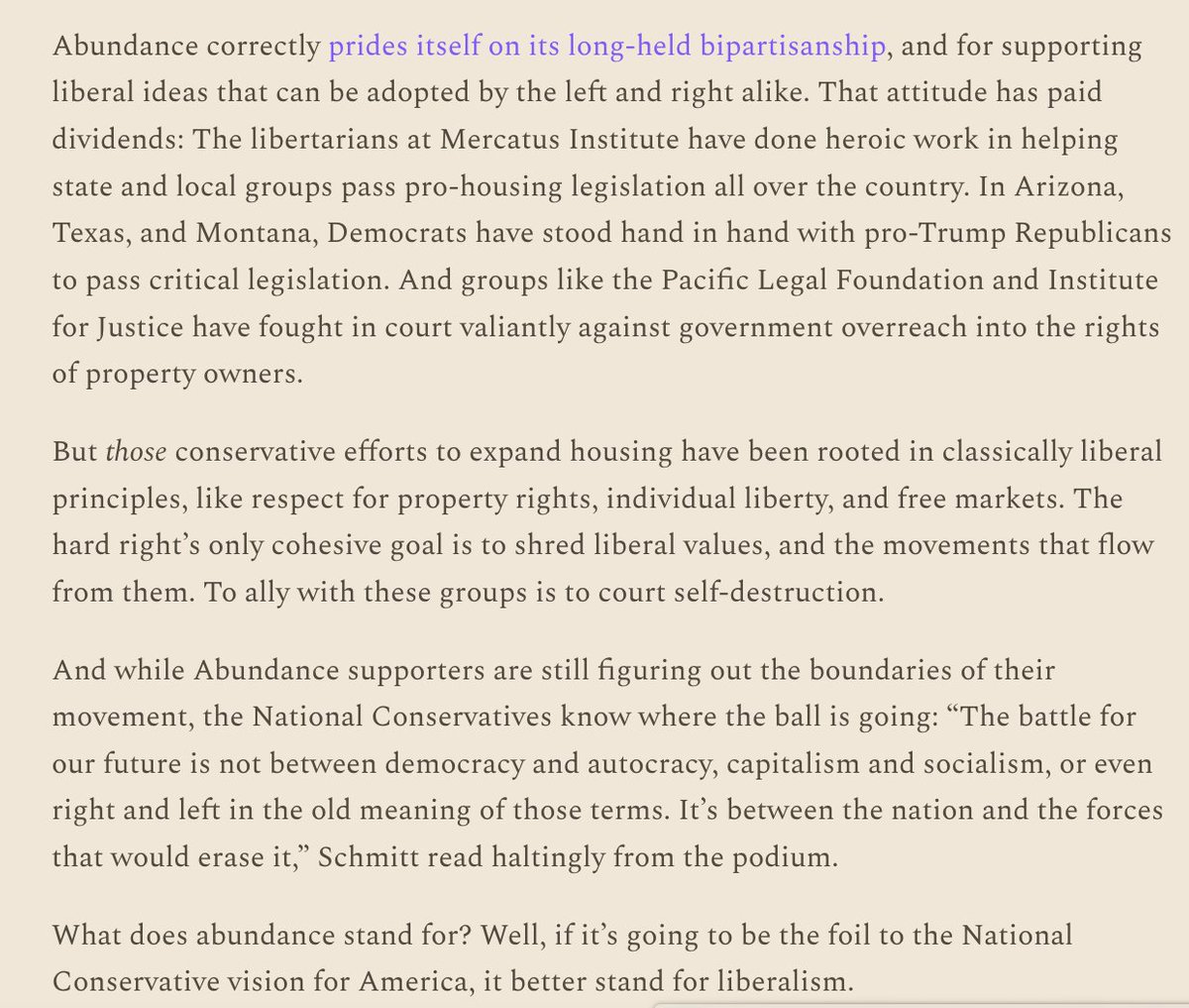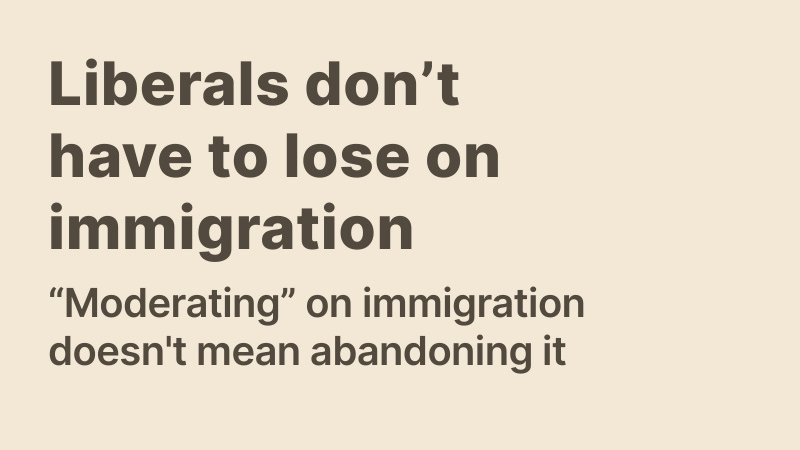
yes, like the city | Editor & CEO @TheArgumentMag | she/her | President of Libbing Out
How to get URL link on X (Twitter) App


 If Thomas or anyone at FAI would like to write an article expressing their commitment to classically liberal values and/or criticizing the post-liberal right and the National Conservatives for abandoning the American project, the email is pitches@theargumentmag.com. I would be eager to publish it!
If Thomas or anyone at FAI would like to write an article expressing their commitment to classically liberal values and/or criticizing the post-liberal right and the National Conservatives for abandoning the American project, the email is pitches@theargumentmag.com. I would be eager to publish it!https://x.com/ThomasHochman/status/1965527820630905288

 Without immigration, America is destined for economic decline.
Without immigration, America is destined for economic decline.
https://twitter.com/talmonsmith/status/1904558851271115217Permitting and regulatory requirements are essentially costless to fix. I could ctrl-F any zoning code in the country and easily delete the minimum lot size reqs/parking minimums.

 First, all of these are land use issues! The pathologies I reported on in housing are evident on energy and transit, despite the vast differences in the underlying technologies, financing issues and political valences.
First, all of these are land use issues! The pathologies I reported on in housing are evident on energy and transit, despite the vast differences in the underlying technologies, financing issues and political valences. 


https://twitter.com/RoKhanna/status/1900398909744456169Redfin defines investors as ANY institution or business that purchases residential real estate.


 Population migration to red states from blue ones isn’t an act of God, it’s the direct result of failed housing policies in Democratic led states.
Population migration to red states from blue ones isn’t an act of God, it’s the direct result of failed housing policies in Democratic led states. 

























https://twitter.com/Richard_S_Cho/status/1525484851377455105
 Someone should send this book to HUD. cc: @ColburnGregg @compatibilism
Someone should send this book to HUD. cc: @ColburnGregg @compatibilism 












